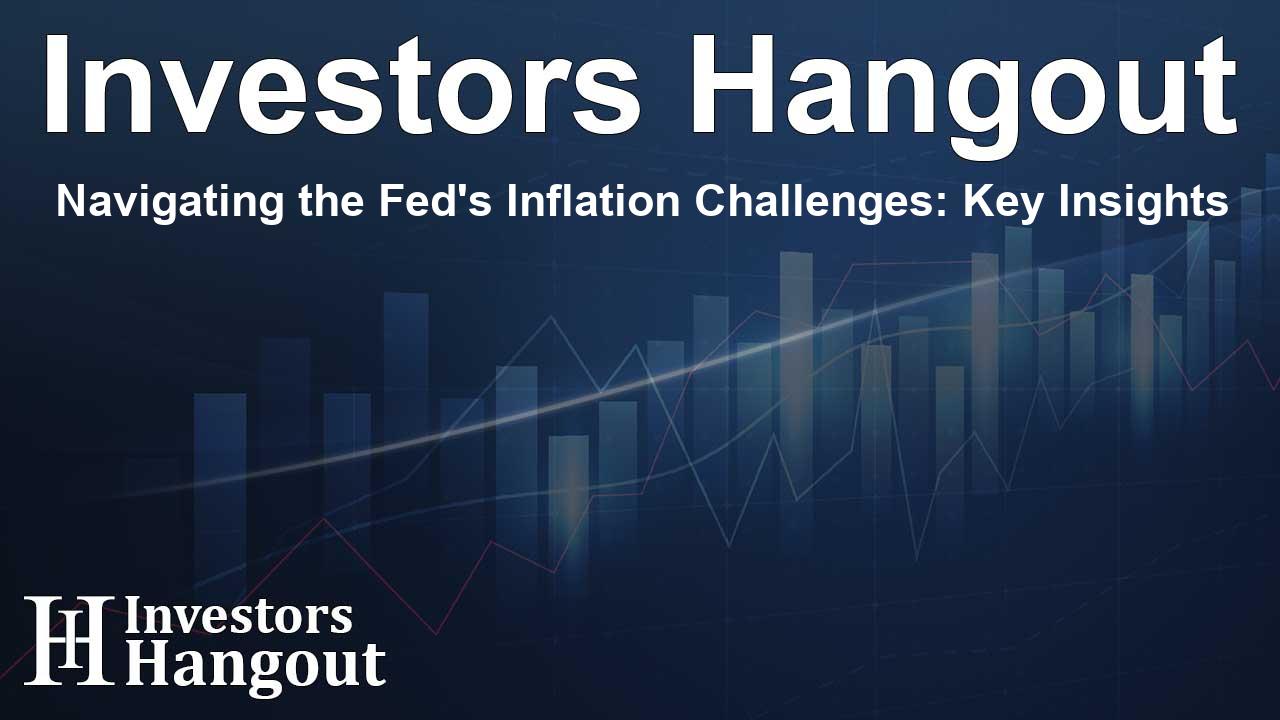Navigating the Fed's Inflation Challenges: Key Insights

Navigating Federal Reserve's Inflation Challenges
In a recent live discussion, our expert team dove into the Federal Reserve's ongoing challenges with inflation. They analyzed the implications of upcoming inflation data and the anticipated trajectory for rate cuts. With inflation trends and employment statistics presenting a complex landscape, the conversation offered insights into how these factors could influence the US bond market.
Understanding Current Inflation Trends
The panel consisted of leading economists such as James Smith, who specializes in developed markets, James Knightley, the Chief International Economist, and Padhraic Garvey, the Regional Head of Research for the Americas. They unpacked the latest data concerning US inflation and monetary policy. These discussions reveal how current inflation rates are shaping the economic outlook and potential decisions from the Federal Reserve.
Implications for the Financial Markets
The consensus among the economists is that the dynamic between inflation and employment will be pivotal in determining future monetary policy. As inflation rates fluctuate, the likelihood of rate cuts is also affected. This intricate balancing act is crucial for the Federal Reserve as they navigate economic signals. Analysts are particularly interested in how these developments may impact the broader financial markets and investor confidence.
Future Projections and Scenarios
Economists frequently emphasize the importance of adapting to evolving economic conditions. With employment figures and inflation forecasted to change, the discussion highlighted various scenarios that could unfold in the upcoming months. This fluid situation underscores the necessity for investors and market participants to stay informed about the latest developments and prepare for potential rate adjustments from the Federal Reserve.
Frequently Asked Questions
What is the main focus of the panel discussion on inflation?
The panel discusses the Federal Reserve's approach to inflation, analyzing how it impacts monetary policy and the financial markets.
Who are the experts featured in the discussion?
The experts include James Smith, James Knightley, and Padhraic Garvey, each bringing valuable insights from their areas of expertise.
Why are inflation and employment interconnected?
Inflation and employment are related because changes in job rates can influence consumer spending, which in turn impacts inflation rates.
How might the Fed respond to changing inflation rates?
The Fed may adjust interest rates based on shifts in inflation, aiming to either stimulate economic growth or cool down overheated sectors.
What should investors monitor in the coming months?
Investors should keep an eye on upcoming inflation data reports and employment statistics as these will significantly impact market trends and policy decisions.
About The Author
Contact Owen Jenkins privately here. Or send an email with ATTN: Owen Jenkins as the subject to contact@investorshangout.com.
About Investors Hangout
Investors Hangout is a leading online stock forum for financial discussion and learning, offering a wide range of free tools and resources. It draws in traders of all levels, who exchange market knowledge, investigate trading tactics, and keep an eye on industry developments in real time. Featuring financial articles, stock message boards, quotes, charts, company profiles, and live news updates. Through cooperative learning and a wealth of informational resources, it helps users from novices creating their first portfolios to experts honing their techniques. Join Investors Hangout today: https://investorshangout.com/
The content of this article is based on factual, publicly available information and does not represent legal, financial, or investment advice. Investors Hangout does not offer financial advice, and the author is not a licensed financial advisor. Consult a qualified advisor before making any financial or investment decisions based on this article. This article should not be considered advice to purchase, sell, or hold any securities or other investments. If any of the material provided here is inaccurate, please contact us for corrections.
